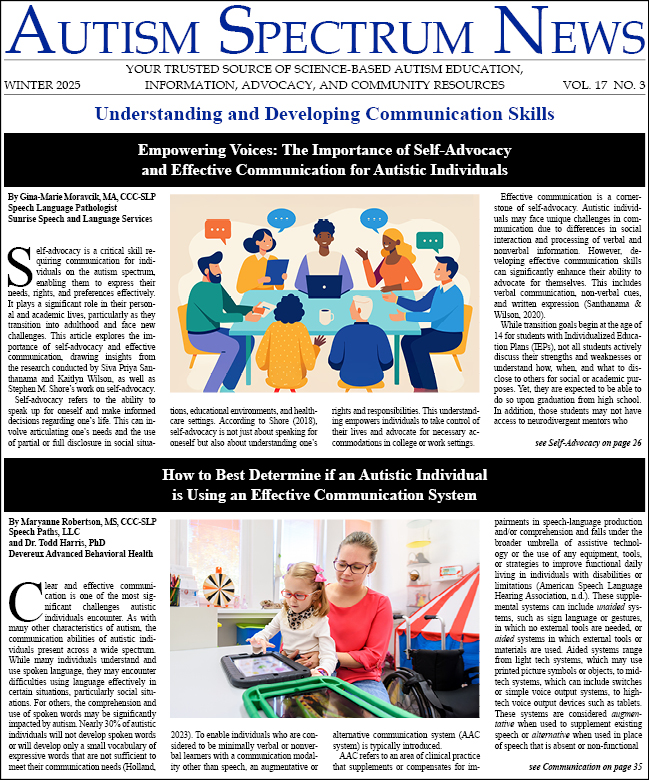-
Engagement in Special Interests Influences Well-Being and Provides Employment Opportunities in Neurodiverse Individuals
A brief note on the terminology used in this article: While people should practice sensitivity towards various opinions, many adults on the autism spectrum have disclosed the preference of identity-first language over person-first language (Botha et al., 2020). Thus, identity-first language, such...
-
Supporting the Transition to Employment for Adolescents with Autism
Graduating from high school and transitioning to the world of work is an extremely important and exciting milestone. However, for many young adults with autism obtaining and maintaining employment can present some unique challenges. Unfortunately, despite the vastly increasing numbers of...
-
Six Steps for Greater Autism Inclusion In The Workplace
Imagine you have an employee who excels at pattern recognition, thinks “outside of the box” and has extreme attention to detail. Yet, they might not enjoy making eye contact or be the best at reading social cues. This was the case for one company’s new hire that I learned about during...
-
What Benefits Should an Employer Have When Hiring Neurodiverse Employees?
With an ever-shifting trend toward hiring more neurodiverse employees, we are seeing major profit potential for financial and technology companies. These types of employers have begun to realize and capitalize on the unique value that a team of neurodiverse employees can bring to the table. Around...
-
Identity Language: In Service of a More Inclusive Workplace
As diversity and inclusion initiatives grow in popularity, it is important to consider how they contribute to shaping workplace attitudes. Programs that do not take current developments happening in the communities being serviced into account will come across as outdated at best, and harmful at...
-
Self-Advocacy and Successful Onboarding and Maintenance of Employment
The topic of employment struggles for those on the Autism Spectrum tends to focus on gaining meaningful work opportunities, while the conversation needs to continue by looking at sustaining employment. In a 2018 study, only 14.3% of the sample sustained employment for a period longer than 18 months...
-
Ensuring Safety in an Inclusive Workplace
According to the Office of Disability Employment Policy, “Americans on the autism spectrum experience substantial challenges to attaining competitive integrated employment opportunities that match their interests, gifts, and talents. They experience substantial unemployment and underemployment,...
-
Fostering a Healthy Workplace Requires a Holistic Approach
Our home lives have invaded our workspaces, and vice-versa. The whole person, not just the employee, shows up at work, and likewise, it’s not just mom or dad who shows up at home. Because of the pandemic’s significant impact on employee work-life balance, employers can no longer assume...
-
Ensuring Equal Access to Employment Opportunities for Adults with Autism Requires Bold Legislative Initiative
In the wake of an unprecedented year, many of us are all keenly aware of the difficulties that can come with finding and keeping a steady, good-paying job. However, for adults diagnosed with autism spectrum disorder (ASD) or other developmental disability, this already-difficult endeavor can be...
-
Neurodiversity Hiring Programs – A Path to Employment?
Standard recruiting and interviewing processes are designed for the ways neurotypical candidates think. Unfortunately, these practices often obscure the talents neurodivergent candidates can bring to an organization. While some autistic individuals do obtain employment through an employer’s...




